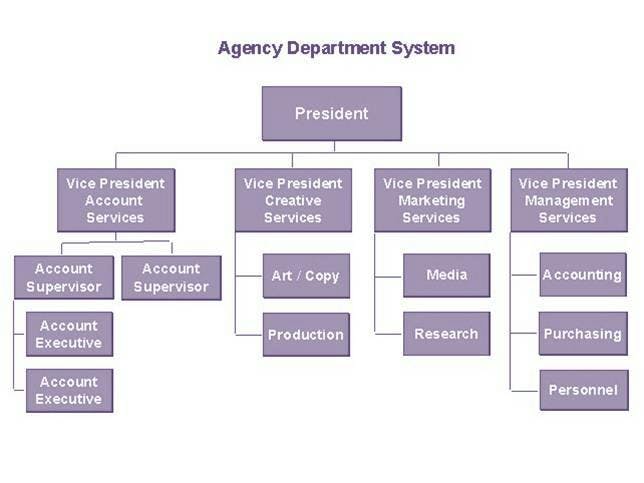Skip-Level Meetings Guide: Everything You Need To Know

Skip-level meetings are a fantastic way for managers to understand what's going on across the organization, however, if they are done incorrectly, "skips" can be a major source of manager frustration and destroy trust all in one fell swoop.
What does a skip-level meeting mean? Once you're in leadership, the CEO, VP, or director may only talk to other managers. A skip-level meeting is when that manager "skips" down a level to speak with individual contributors or the division head about specific issues.
There's a high degree of reward in this activity, but it's also risky if you aren't thoughtful about it.
That's why we put together a guide to help you throughout this process. In this post, we'll cover the following principles and concepts:
- What are skip-level meetings? A deep dive into the reasoning behind them.
- The benefits of skip-level meetings
- How to run the skip-level meeting
- Alternative strategies to collect similar information
What are skip-level meetings?
A skip-level meeting is a way to circumvent the normal flow of information in a traditional organizational hierarchy in order to improve information gathering, and ultimately decision-making.

Let's use the organizational chart above to illustrate how this works.
If you are the President (at the top), you have four VPs that report to you. Every week, you have a meeting with your VPs and they share how things are going, based on the conversations they have with their direct reports during the week.
As the President, you may feel like you know what's going on across the organization, but there's a lot of richness that's lost in translation. As a result, you feel out of touch with the rest of the company, especially at it grows in size.
So what do you do?
You can hold a skip-level meeting! This can be with an individual (like a 1-1 meeting) or a group of people.
In this example above, the President may decide to meet with the account supervisors (who report to one of your VPs) and seek to understand what's going on inside their team. The President is circumventing the VP during a skip-level meeting and going directly to the source.
Pitfalls to skip-level meetings
As you might imagine, having a meeting with someone else's direct reports may be a bit weird, especially for the person who reports to you.
Imagine if the President of a company holds a skip-level meeting and asks questions like, "how is your manager doing?" That would put the manager in a bad situation as well as the front-line employees. If employees are truthful, there may be repercussions from the manager.
That's why we recommend that skip-level meetings be focused elsewhere. We believe that a skip-level meeting conversation should not be focused AT ALL on the team leader/manager. They are not in the room or in the conversation. They don't have a chance to weigh in. By default, it is a one-sided conversation and any discussion is one-sided.
The goal of skip-level meetings
The outcome of a skip-level meeting is to capture richer insights to improve decision-making because the information being gathered is raw and unfiltered. It's also a great way to build a connection throughout the organization and build trust.
In the next section, let's talk a bit more about the benefits to these meetings.
3 Benefits of skip-level meetings
Front-line employees frequently don't have a lot of respect for decisions a leader makes, as they are far away and out of touch with the front-line. A skip-level meeting can serve as a way to counteract this unfortunate reality. We've described these benefits below:
1. Improve the flow of communication
First up, these skip-level meetings improve the flow of communication across the company. Workplace communication is a bit like the game of telephone. Every month, you may have a town-hall meeting across the company. Executives leave feeling like the important information has been shared, while employees leave wishing they had an hour of their life back.
The only way to improve the flow of communication is to break down the barriers that exist. Instead of transmitting information from leadership, to managers, then to employees, leaders should periodically go directly to the employee.
The inverse is true. Executives should go directly to the source and listen to what front-line employees have to say. This feedback loop is critical to building better communication habits at work.
2. Build better relationships across the organization
Next, these meetings create a chance to get to know the people doing the work on a personal basis. I've been in skip-level meetings as an employee and if implemented correctly, you leave feeling a connection with leadership, especially if you feel like you are being heard.
3. A key component of continuous improvement
Finally, another benefit to skip-level meetings is that it provides a chance to truly understand how to improve the business. The layers of management abstraction insulate leaders from the consequences of their decisions. This leads to poor decision-making.
Leaders should go directly to the source to understand what needs to be improved. Skip-level meetings is a way to make this happen.
Skip-Level meeting prep
Now that you understand the high-level benefits of these meetings, let's dive into how you can get started, while also avoiding the major roadblocks discussed earlier.
How frequently should this meeting happen?
We recommend having a skip-level meeting on a quarterly basis. Do not hold a skip-level meeting in reaction to another event, as this just sends the signal that something is wrong. That's not the point of the meeting. There are other ways to collect data if you need to let a manager go for poor performance.
Prepare the team leader (1 week before)
The most important way to set the stage is by preparing the manager beforehand, ideally at least one week. At first, this may be a little awkward for the manager, but if you hold a skip on a regular basis, it will become more of a normal occurrence.
We recommend sending something tangible (like an email) alerting the manager that this is going to happen on X date for Y length of time. We also recommend sharing WHY you are holding the meeting.
Here's a sample email you can use for inspiration:
"Hi Bob,
I wanted to let you know that I'm going to be conducting a skip-level meeting with the Engineering team on May 23rd, 2019. As you may know, it can be difficult to understand what's going on across the organization. A skip-level meeting is a great way for me to build better relationships throughout the organization and also discover areas where I can improve as a leader.
I typically ask the following questions:
- what should I start doing as a leader?
- what should I stop doing as a leader?
- what should I keep doing as a leader?
If you have any questions/comments/concerns, please let me know. I'd be happy to talk more and will be sharing my learnings with you when the meeting is done"
Prepare the employees (2-3 days before)
Similarly to how you prepared the manager, you'll want to prepare the employees as well. Consider sending the following email:
"Hi Team,
On May 23rd, we'll be meeting as a group to discuss how things are going. It can be difficult to fully understand what's going on as well as the consequences of some decisions I make as a leader. I need your help to improve as a leader.
In this meeting, please come prepared to share ideas for improvement. I'm really excited to meet with you and learn a bit more about what's going on."
How Managers Can Hold the Skip Meeting
When conducting the meeting, we recommend focusing on a few key areas. Don't try to overcomplicate things. At the end of the day, if you do this meeting 1x, you should expect limited results. If you do this on a regular basis, expect a lot better insights over time.

A.) Small-talk is ok (and ideal)
When conducting the meeting, you should spend some time getting to know people.
Don't expect people to instantly start sharing meaningful insights with you. After all, they may not even know you! Therefore, it's important to spend some time on small talk. Try to learn a bit more about the people you meet with. We recommend asking questions like:
- What prompted you to come work here?
- When you are outside of work, what do you do for fun?
- What's the best part of your day?
B.) Follow a basic template of questions
Keep things simple with the questions you ask. We recommend asking the following questions:
- What should we start doing as a team/department/company?
- What should we stop doing as a team/department/company?
- What should we keep doing as a team/department/company?
- If you were me, what would you do to improve ___________?
These questions are modeled after the start, stop, keep method. Make sure to ask, "why" to unpack someone's reasoning. Take a look at the socratic method for inspiration as well.
C.) Take Notes
When you take notes, it implies that you care enough to take action based on someone's feedback. While you still need to take action afterwards, this is a tangible way to show that you listen and care about what people have to say.
This also helps create communication redundancy.
D.) Recognize that some people will have an agenda
Some employees may show up to the meeting with an agenda; I'm talking about a motive, not a piece of paper with notes.
The best way to defray this is by establishing at the beginning that the point of the meeting is not to talk about the team leader, but about process and how to improve as a company, to make everyone's life easier.
After the skip-level meeting concludes
When the meeting has finished, share a recap with the individuals that attended and also the manager. Thank them for their time, and call attention to a few items that you will take action on.
If you aren't taking action based on the insights you learn, you are wasting everyone's time and they may be less likely to give you honest feedback in the future.
Don't do this!
Wrapping up/alternative strategies
In conclusion, a skip-level meeting is a great way to fully understand what's going on across the organization. It's worth the time and effort. Remember the following items:
- Make skip-levels a regular habit for best results (once a quarter)
- Be transparent with the manager. Treat them they way you would like to be treated. Give them advance notice and establish context.
- Take action after the fact, don't waste people's time

